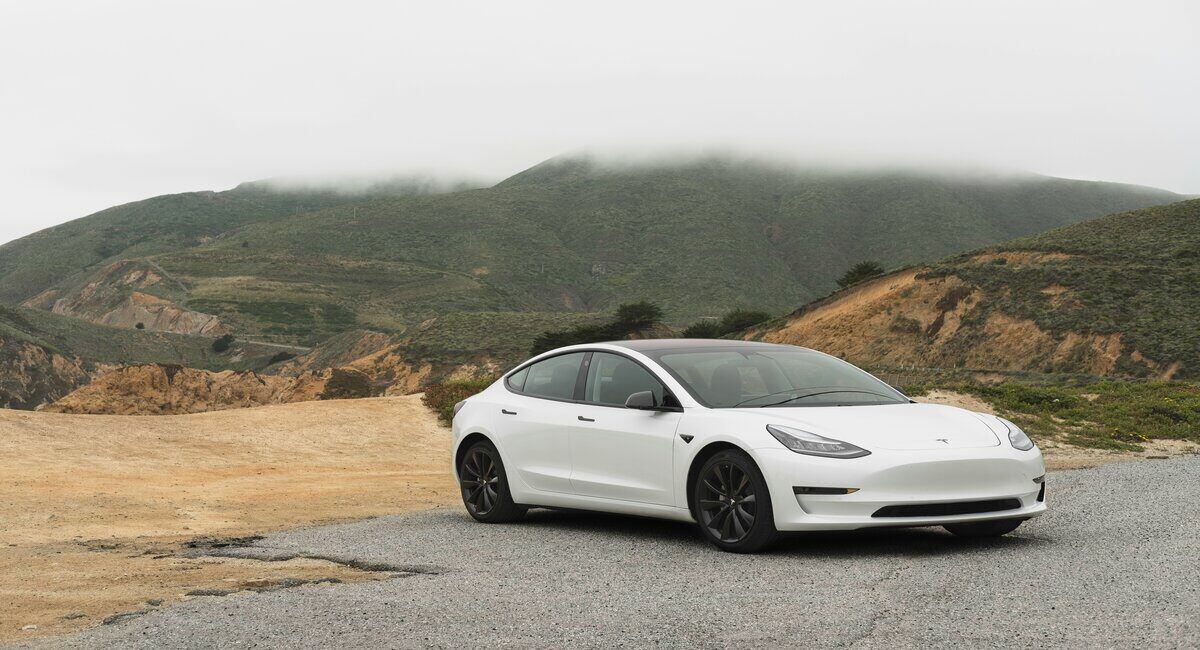Unlike those buying their own vehicle, a person leasing a car is effectively borrowing their wheels in exchange for a recurring fee. If you don’t have the lump sum needed to buy a car outright, leasing one could offer benefits and drawbacks over securing a car loan.
Perhaps the most important things to consider before signing up to either a lease agreement or a car loan are the overall, ongoing costs associated with each option. Sounds simple, right? Well, that’s until you consider potential tax benefits, running costs, and interest payments, to name a few complications.
Fortunately, we at Savings.com.au have done the dirty work and created this guide to help you decide between a car loan and a car lease.
How does leasing a car work?
There are three major options available to Australians looking to buy (and pay for) a new car. First, they could stash away a significant chunk of cash. Second, they could secure a car loan, whereby a lender gives them money to buy the car and they pay it back, plus interest, over a specific term. Or, third, they could choose to lease a car – essentially ‘borrowing’ a vehicle and regularly paying to use it over a set period – typically two to five years.
Like renting a house, leasing a car doesn’t grant you ownership rights over it. But, while a leased car is not technically yours, it still largely serves its purpose.
In the market for a new car? The table below features car loans with some of the lowest fixed and variable interest rates on the market.
Lender | |||||||||||||
|---|---|---|---|---|---|---|---|---|---|---|---|---|---|
| Variable | New | 1 year | More details | ||||||||||
| FEATURED | New Car Loan - Home Owner Special
| ||||||||||||
New Car Loan - Home Owner Special
| |||||||||||||
| Fixed | New | 99 years | More details | ||||||||||
| Loan amounts from $2k to $75k | New Car Loan
| ||||||||||||
New Car Loan
| |||||||||||||
| Fixed | New | 1 year | More details | ||||||||||
| Approval within 24 hoursEarly payout available | New Car Loan - Special (Fixed)
| ||||||||||||
New Car Loan - Special (Fixed)
| |||||||||||||
| Fixed | New | 2 years | More details | ||||||||||
New Vehicle Fast Loan Low Rate | |||||||||||||

- Available for purchasing new and demo vehicles
- $5,000 to $150,000 loan amount
- Redraw facility available up to $5000/day
- Required: Good credit history, stable employment history. Aus citizenship or PR.
Car leasing options
Novated leases
A novated car lease is an arrangement between three parties – an employee, their employer, and a finance company – wherein the employer agrees to make car lease payments to the finance company from the employee’s pre-tax salary (a form of salary sacrificing).
Doing so reduces the employee’s taxable income. However, it might attract fringe benefits tax, which is payable by the employer.
A car ‘purchased’ under a novated lease doesn’t have to be used by the employee for work – it can be entirely for personal use. Thus, most employees are eligible for a novated lease if they have their employer’s approval. Such leases are often packaged up to include operating costs like fuel, maintenance, and insurance, which can alleviate the burden of paying for such costs individually.
At the end of their lease, the employee can typically either keep the car and pay any ‘residual value’ – known as a balloon payment, sell or trade-in the car and lease another car, or extend their lease on the same car.
Finance leases
Cars used by businesses can be paid for through a finance lease. Under such a lease, the vehicle is bought by a finance company and rented out to the lessee over a lease period. At the end of this period, the lessee is obligated to either purchase the car from the finance company by paying the residual value or lease the car all over again.
Operating leases
Operating leases are like a finance lease except the lessee is not responsible for the residual value at the end of the lease – the car is simply handed back to the finance company. Some businesses with a high turnover of vehicles use operating leases to reduce administration costs.
Leasing vs buying a car with a car loan: pros & cons
If you’re thinking of buying a car with a car loan, is it worth considering a car lease instead? A look at some of the pros and cons of both options could help provide a better idea of what’s more suited to you.
Car Lease Pros and Cons
Pros:
-
Cheaper recurring payments: Compared to a monthly car loan repayment, a monthly lease payment is often cheaper.
-
Drive the latest models: With leasing, it’s easy to switch to a new car every few years, allowing you to have some of the latest car safety and technology features.
-
Easy maintenance: Many car leases come with a maintenance package, with costs like servicing, registration, insurance, and even fuel included in the regular lease payments.
-
Tax benefits: Leasing a car for commercial purposes or under a novated lease arrangement can generate significant tax savings for some. For more info about such potential savings, talk to a registered tax agent.
Cons:
-
You do not solely own the car, so you can't sell it: Until you pay the balloon payment (residual), the car's title is in the finance company's name and you cannot sell it.
-
You may be restricted from making modifications: It's likely you'll need permission from the lease company if you wish to modify a leased car’s design or performance.
-
Driving restrictions: Many leases have restrictions on how many kilometres you can drive the car over a set period and how much wear and tear it endures. Breaching these restrictions might attract extra costs.
-
High long-term cost: When you do the total calculations, continually using car leases is often more expensive over the long-term (such as five two-year leases over ten years) than simply buying a car with a car loan and sticking with that same car for a decade.
Car Loan Pros and Cons
Pros:
-
You own the vehicle: Buying a car with a car loan puts the car's title in your name. Though, you won’t hold 'clear title' until the debt is paid off. Until then, the lender will hold an 'interest' in the car.
-
You can do what you want with it: As the owner of the vehicle, you’re free to drive it as much as you like, wherever you like, or modify it however you want.
-
You can sell the car: Even if you still have a debt owning on the car, you're generally free to sell it – although you should talk to your lender before doing this
-
Power to compare: There are many car loan providers in Australia offering secured or unsecured car loans at fixed or variable interest rates. Car loan customers have the power to shop around to find a good value product with the right features for them.
Cons:
-
Higher recurring payments: Since you’re paying off the total cost of the car (instead of merely paying for its use), car loan repayments are usually higher than lease payments.
-
Repair bills: As the car gets older, it's likely that more expensive repairs will need to be done.
-
Selling hassle: If you want to get a new car, you’ll probably have to deal with the hassle of selling the car or trading it in.
-
Depreciation: New cars usually depreciate in value significantly, particularly in their first couple of years. As the car’s owner, you’ll have more money tied up in this depreciating asset.
Leasing vs financing a car: what to remember
How to lease a car with bad credit
In some cases, you can still lease a car even if you have bad credit in Australia – it will just depend on what your credit score actually is and how generous the dealer is. You might have to put up with higher lease payments and fees or succumb to less favourable terms, however.
When leasing a car through a novated lease arrangement, many finance companies will overlook a bad credit rating as they’re technically receiving the payments from your employer.
Car Lease vs Car Loan Case studies
Kendall is an auto tech fan who prefers leases

Kendall is obsessed with cars and loves driving the latest in car tech. She enjoys picking up the keys for a flashy new car every couple of years and gets bored driving the same car for any longer than that, so she prefers to pay for cars through a novated lease.
Kendall believes that driving a nice car every day makes her life happier, because it helps her enjoy the long commutes to and from work (she drives 45 mins each way). On top of that, she saves on tax.
Kendall understands it might be cheaper for her to buy one car and hold it for several more years, but believes the joie de vivre (enjoyment of life) she gets from leasing new cars is worth the extra cost.
Shinji chooses a car loan to buy his dream car

Shinji has fallen in love with a particular new car on the market but doesn’t have the cash to buy the car outright. He knows he could either buy it with a car loan or pay for it with a novated lease.
He understands a novated lease might save him money, but doesn’t think he’ll stay with his current employer for much longer and he’s not sure if a future employer will agree to a novated lease arrangement.
Also, since it’s his dream car, Shinji wants to be its owner so that he can have the freedom to drive it as much as he wants and modify it with a new sound system, metallic wrap, hydraulics, and underglow neon lights.
Savings.com.au’s two cents
The biggest saving opportunity with a car lease often comes from the tax benefit you can leverage by paying for it with your pre-tax income. The risk here, of course, is that a change of employer could mean you lose this ‘pay-with-pre-tax-salary’ capability and your benefit could disappear overnight. Without this tax-driven benefit, you’re more than likely better off buying the car with a car loan. That’s particularly true if you plan to own the car for more than five or six years. Cars as an asset class generally depreciate quite quickly at the front end of ownership.
However, this rate of depreciation can come down substantially in the ‘middle’ years of ownership from year five to year eight. That means, if you own the car (after paying off your car loan), those years can provide you with very cost effective motoring through slowing depreciation, even after taking into account the maintenance costs that often increase as cars age.
Regardless of your decision, if you're considering a lease for what you believe will be tax benefit purposes, it's always wise to consult a registered tax agent, such as an accountant, for their professional advice on the matter.
Article first published August 10, 2018. Updated July 17, 2023





 Brooke Cooper
Brooke Cooper

 Harry O'Sullivan
Harry O'Sullivan
 Harrison Astbury
Harrison Astbury
 Alex Brewster
Alex Brewster

